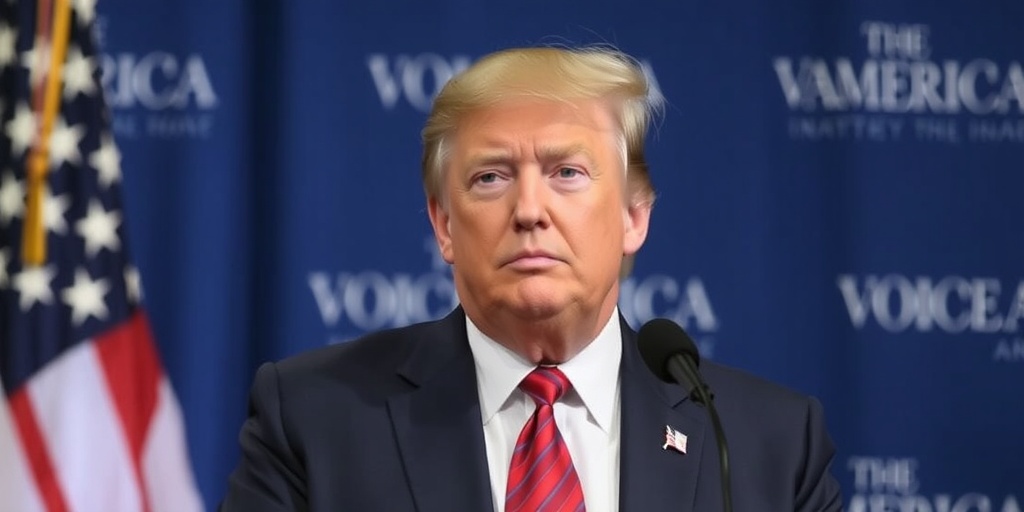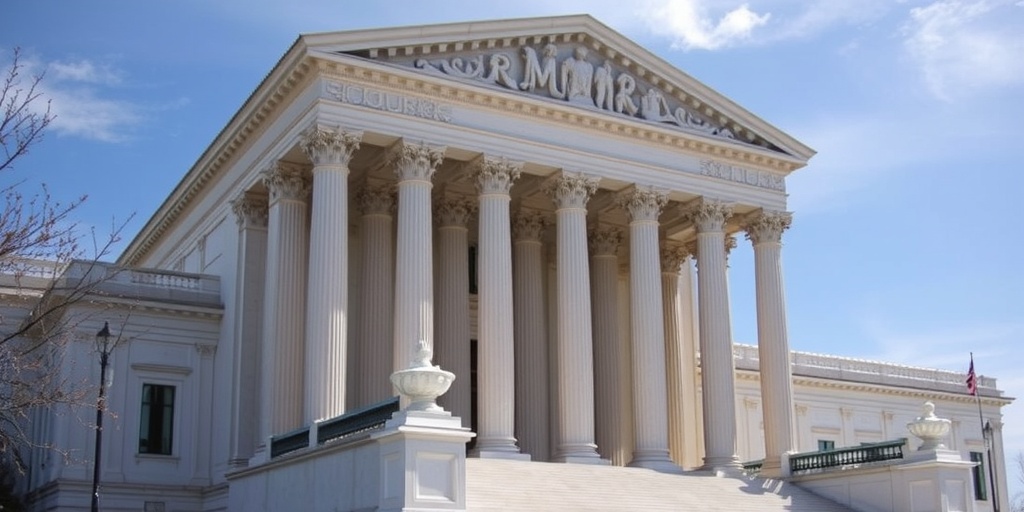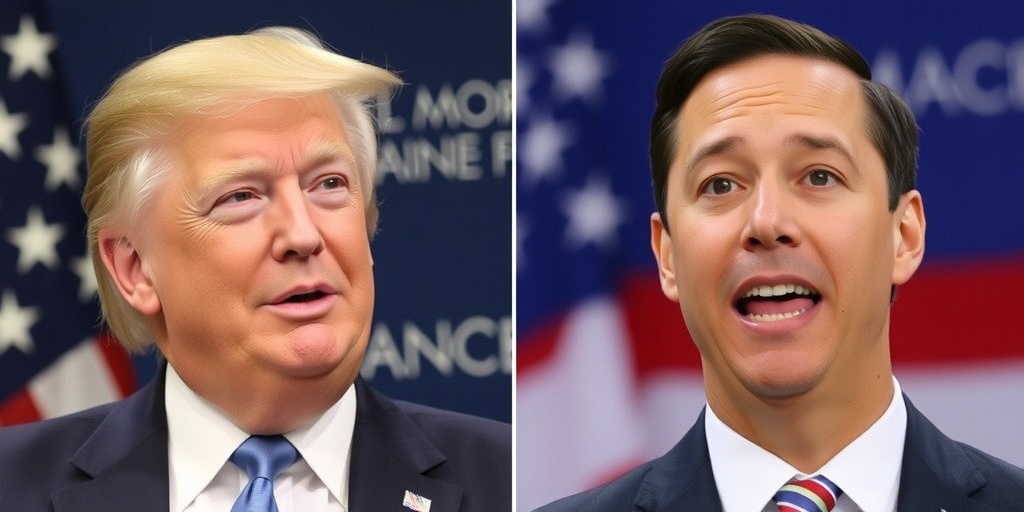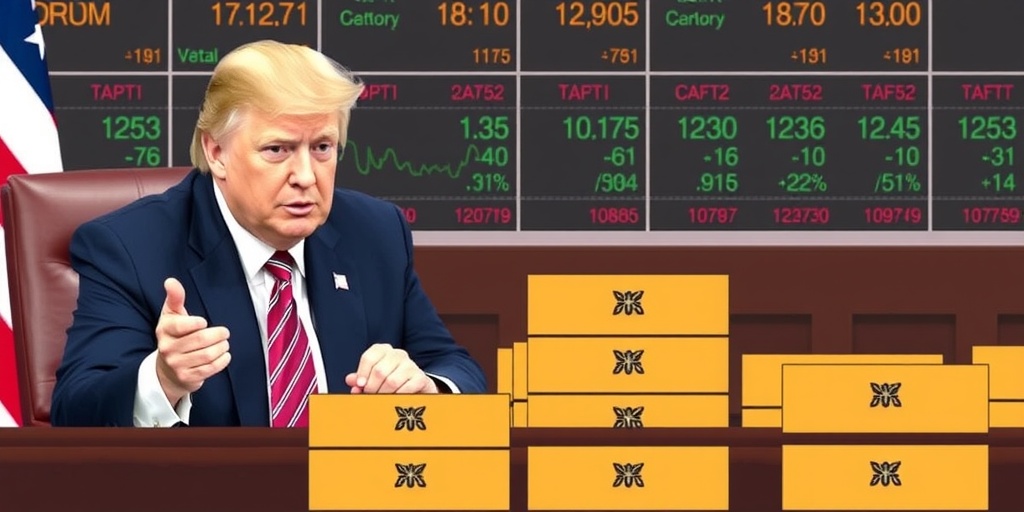Now Reading: U.S. Judge Blocks Trump’s Move to Dismantle Voice of America
-
01
U.S. Judge Blocks Trump’s Move to Dismantle Voice of America
U.S. Judge Blocks Trump’s Move to Dismantle Voice of America

Federal Judge Halts Trump Administration’s Efforts to Dismantle Voice of America
In a significant ruling for press freedom, a federal judge in Manhattan has temporarily halted the Trump administration’s initiatives aimed at dismantling Voice of America (VOA), the government-funded international broadcaster that plays a critical role in delivering news to audiences around the world, especially in regions with restricted media access. The decision came during a hearing on a lawsuit brought forth by VOA journalists and their unions, which contends that the administration’s actions, including the suspension of hundreds of journalists, infringe upon their First Amendment rights.
U.S. District Judge J. Paul Oetken issued a temporary restraining order during the hearing, which is set to remain in effect for up to 21 days. The order responds to a lawsuit filed by Voice of America’s journalists, who argue that the measures taken by the Trump administration to undermine the agency threaten not just their livelihoods, but the very principles of free speech and independent journalism. A separate lawsuit has also been filed by Michael Abramowitz, the director of Voice of America, challenging the administration’s overreach.
Andrew G. Celli Jr., an attorney representing the journalists in the suit, declared the ruling a "decisive victory for press freedom and the First Amendment." Celli emphasized that the judge’s actions serve as a sharp rebuke to an administration that has, according to critics, shown a blatant disregard for democratic ideals and the importance of a free press.
Despite the ruling, responses from Voice of America and its parent organization, the U.S. Agency for Global Media, were not immediate, leaving questions about their next steps in this ongoing controversy. Founded in 1942, VOA provides news programming in 49 languages, reaching audiences in various countries, including China and Iran, where citizens face significant challenges accessing independent journalism. Historically considered a vital tool in the United States’ soft-power strategy to promote democracy, VOA’s future now hangs in the balance amid rising tensions between the Trump administration and media organizations.
The contentious relationship between the Trump administration and Voice of America has escalated in recent months. President Trump has repeatedly criticized VOC for allegedly harboring a left-wing bias, which he claims undermines its credibility as a U.S. government-funded entity. As part of his strategy to exert control over the broadcaster, Trump appointed Kari Lake, a close ally and former right-leaning television anchor, as a special adviser to oversee the U.S. Agency for Global Media. On March 14, Trump signed an executive order that directed the agency to eliminate many of its operational functions, a move which advocates argue is designed to quash independent journalism.
Reports indicate that as part of the administration’s actions, many employees lost access to their work emails, and VOA’s transmission capabilities have been adversely affected, with reports of certain radio frequencies in Asia and the Middle East going silent. These actions have drawn sharp criticism and raised alarm among press freedom advocates who view them as part of a broader campaign to stifle independent journalism in the United States and abroad.
Since regaining office, Trump has continued to challenge the media landscape, utilizing various tactics to undermine journalistic integrity. His administration has restricted access to events for journalists from major news organizations, such as The Associated Press, while selectively choosing which media outlets are allowed to participate in the press pool that covers presidential activities. Furthermore, Trump and his allies have pursued legal action against several news organizations, further illustrating a pattern of hostility toward the press.
This legal battle is not an isolated incident. In a related case earlier this week, another federal judge in Washington temporarily blocked efforts by the Trump administration to close down Radio Free Europe/Radio Liberty, an influential broadcaster created during the Cold War to counter Soviet propaganda. This ruling underscores the judiciary’s role in protecting press freedoms against governmental overreach.
As this unfolding saga continues, many will watch closely to see how the administration responds to the temporary restraining order and what implications the ongoing lawsuits will have on the future of Voice of America and other government-funded broadcasters. The outcomes could set crucial precedents regarding press independence and the First Amendment rights of journalists in the United States, particularly as advocates continue to fight against any actions aimed at dismantling these vital news services. The judiciary’s role in safeguarding free speech remains as critical as ever in a climate characterized by increasing tensions between the government and the media.
Stay Informed With the Latest & Most Important News
Previous Post
Next Post
-
 01New technology breakthrough has everyone talking right now
01New technology breakthrough has everyone talking right now -
 02Unbelievable life hack everyone needs to try today
02Unbelievable life hack everyone needs to try today -
 03Fascinating discovery found buried deep beneath the ocean
03Fascinating discovery found buried deep beneath the ocean -
 04Man invents genius device that solves everyday problems
04Man invents genius device that solves everyday problems -
 05Shocking discovery that changes what we know forever
05Shocking discovery that changes what we know forever -
 06Internet goes wild over celebrity’s unexpected fashion choice
06Internet goes wild over celebrity’s unexpected fashion choice -
 07Rare animal sighting stuns scientists and wildlife lovers
07Rare animal sighting stuns scientists and wildlife lovers





















